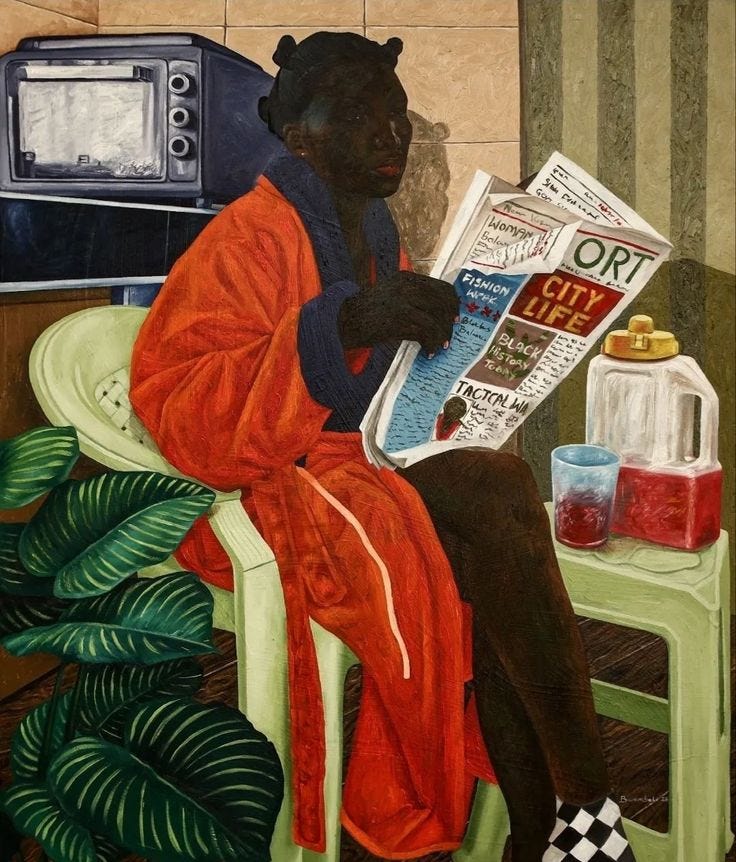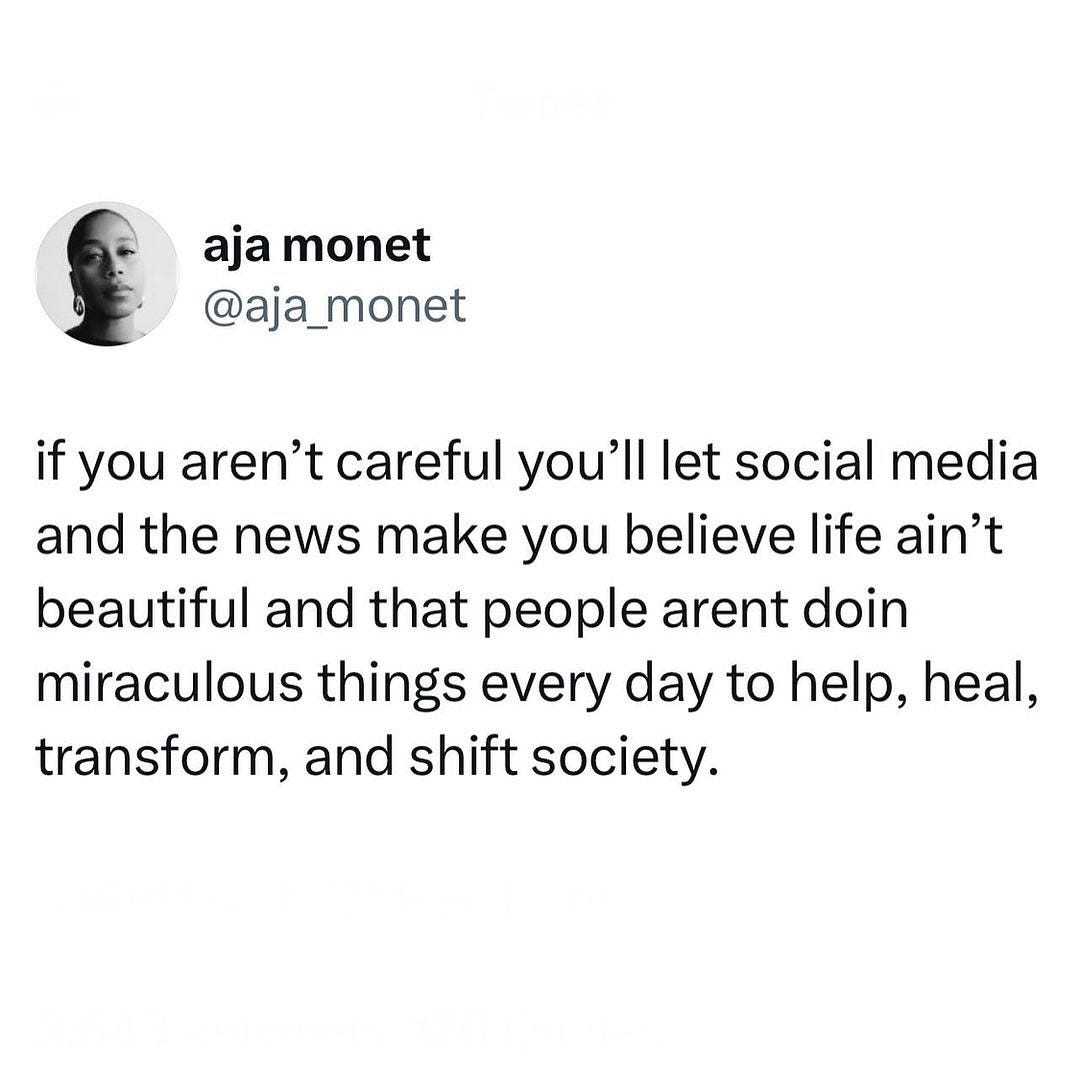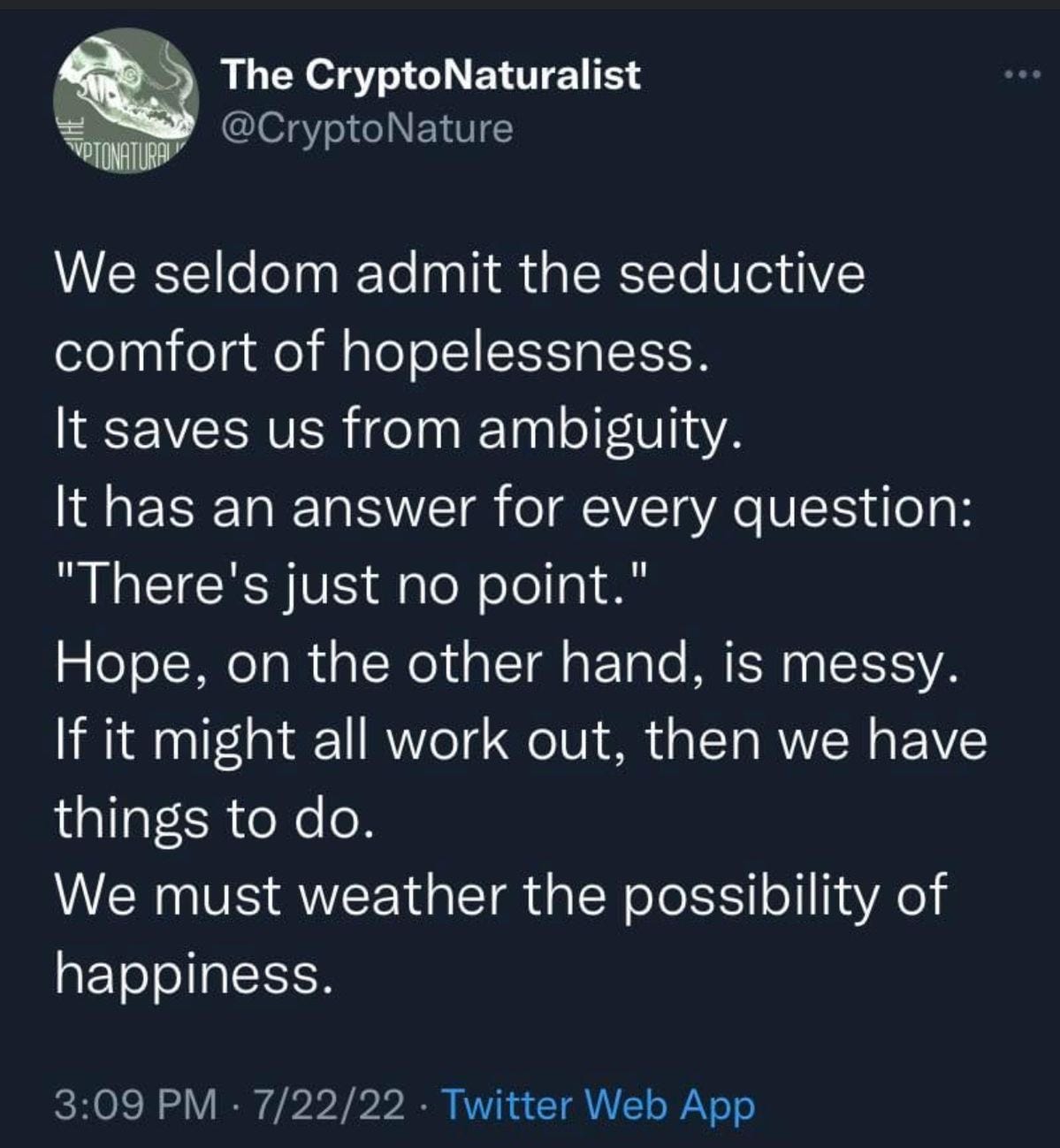For months, I’ve found myself deeply overstimulated by almost all forms of media. There are too many hot takes on TikTok. I am overwhelmed by the number of infographics on Instagram. Despite having a podcast myself, I go through long stretches of time where the last thing on earth I want to do is have someone’s stream of consciousness projected directly into my ear. For a fleeting moment starting the car or stepping into the shower, I slip into the persona of one of the unbearable people who openly asks why “everyone has a podcast these days.” These types are undoubtedly the same people who roll their eyes when you express enjoyment over anything on a Billboard pop chart - and I do not want to join them.
Like many of us, I’ve spent years cultivating my online world, the breadth and depth of what I see expanding as I dive deeper into my interests and acquire new ones. But as genres and creators cycle in and out of my feed, my consumption of news, cultural criticism, and hot-take content has only ballooned. At each follow, I’m positive it felt like a good idea to connect myself to the people I believe are making valuable contributions to our online landscape. If social media allows us to bypass gatekeepers and tell our own stories, then more content, opinions, and information feel like a good thing. And yet, every day, I find myself returning to my infinity feeds marginally more bitter about the habit than I was yesterday.
As the internet and social media have exploded in popularity, our uses for these tools have become increasingly sophisticated. What used to be a place I went to post birthday collages for my friends and watch “life hack” videos is now a cornerstone for how I engage with politics and world issues. Just as quickly as our habits changed, we developed new rules of engagement to accompany us. If social media is a place where everyone can have a voice, then this is where the good, caring people have to be, listening, learning, and getting informed. And you care, don’t you? Slowly, plugging in became more than just an option. On some level, it was a virtue.
Now, having spent over a decade having my attention span hacked by media and tech companies, it feels like a much more complicated ask. By now, we’ve long known that algorithms are not just facilitators of information, but also an invisible hand, quickly catching on to the fact that pushing heart-wrenching, argument-inspiring content drives user engagement more effectively than any family photo ever could. Alongside the newest issue to learn about is a high-ranking comment about how society is crumbling, there is no ethical consumption under capitalism, and the earth is dying anyway. And yet, despite the content on our feeds devolving, our expectations for consumption have only grown. There is always more to know, more to care about, and more to consider. And, even further, despite the exhaustion and repetition of it all, to tire of the devastation and outrage would be a personal failing, equating to a desire to tap out of the “reality” of the world around us. In an age of exploding communications, we’ve created a beast that demands to be fed- and we too have become insatiable.
In the face of immense change and shifting social consciousness, I don’t think we can afford to maintain this logic. While diving daily into a sea of short-form videos, infographics, and one-liners is a great way to learn a little bit about a lot, it is also a great way to become overwhelmed, paralyzed, and insecure. Despite the promises of the internet in its highest form, it feels like we’re operating under the impression that if we can just be “informed enough,” and care enough as a result, we can live in a better world. And yet, deep down, that idea conflicts with what we know to be true- Knowing is not the same as understanding, awareness is not the same as care, and consumption is a piss-poor substitute for engagement. The true pace of change is incongruent with our cultural addiction to speed, efficiency, and instant gratification. And what the world needs from you, more than your fear, your worry, or even your full understanding, is your engagement.
A few months ago, I was reading The Psychology of Money by Morgan Housel. At the beginning of one of his chapters, he drops the quote “Optimism sounds like a sales pitch. Pessimism sounds like someone trying to help you.” In his case, he was discussing how it’s just as reasonable to believe that something terrible may happen to affect your financial life as it is to believe something wonderful may occur. But the quote stuck with me far past this application. In a world of outrage, how do you cultivate hope? And how do we establish boundaries with the things that threaten that vision? Even if subconsciously, I do a similar calculation in other areas of my life. Are my relationships with my friends and family fruitful? Is my work aligned with who I want to be? Ultimately, the question of anything worth doing is does this shrink me or make me bigger? Why should we hold our online lives to a standard any different?
I think about the ideas, beliefs, and values we consume in the same way. Ideas are powerful because they can carry the charge we need to shift our realities. Yet, in order to do so, they need the space to transmute and take on new life. If not, the gap between what we desire and how we can achieve it becomes rotted. If we decide that “everything is unethical,” “there’s too much to know,” and “people will never change,” we become overwhelmed and disempowered by our ideas of how things should be. Eventually, that disempowerment can become apathy. If there is nothing to be done, I will simply do nothing. If no one is fighting for me, I am indebted to no one. If the world as we know it is collapsing, I might as well protect my own—the rot. Hope, on the other hand, asks us to traverse a far more complicated path.
As wonderful as the internet can be, transformation is a real-world activity. No matter how attached we are to the small computers in our hands, it has never come close to the depth of experiencing IRL human connection. We know this, and yet many of our screen times sit much higher than time spent with our loved ones, our wider communities, or ourselves. No matter how imperfectly, we have to re-negotiate our relationship with the digital.
Social media is an awful replacement for human connection, but it is a fantastic facilitator for it. Repeat after me: communication, not living. Finding where the people are, then going. Showing up how you can, and doing it again the next week. Finding where you fit in. Going deep. However simple the idea, the ease of use has made us forget that the internet is more representative of what floats to the surface of the ocean than what’s in the depths of it. And connection and hope are built and maintained in the depths; Daily, present, and engaged.
Despite the sense of urgency and existential dread we are fed daily, I find some strange comfort in remembering that every generation believes they are living at the pinnacle of human existence. That today is the most critical period of history the world has ever seen and that their experience is unique. When I put down my phone, and engage with those in my community, I am reminded that the arc of history is long. This does not make me more or less important than anyone else. It simply makes me, or us, a piece of the puzzle.
Regardless of what the future may bring, something neither of us is sure of or can predict, I’ve decided to make my piece a reflection of my hopes and not my fears. And after dabbling in the alternative, I know that if we are not actively cultivating hope in our lives, we are inevitably cultivating despair.









As a wise person once said “touch grass”
please read How to Do Nothing by Jenny Odell!